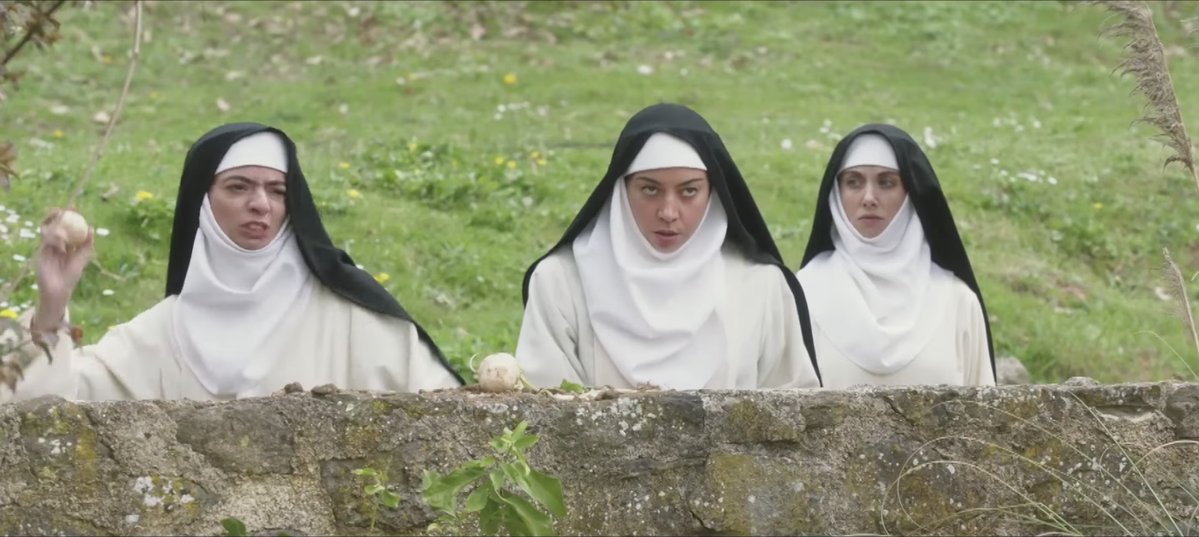by Chris Feil
A naughty nunnery run amok is the setting for The Little Hours, a medieval comedy by Jeff Baena. The film takes a passage of Boccacio’s The Decameron and gives it a verbally modernized flair: ancient notions of sin are reimagined through potty-mouthed contemporary delivery and hipster dryness. What makes for a unique (if obvious) take on stifled early-century femininity also becomes an entertaining satire on female rebellion and male stupidity.

Massetto (Dave Franco) is a feudal manservant fleeing the wrath of his master Lord Bruno (Nick Offerman) after an ongoing affair with his wife. A drunken Father Tommasso (John C. Reilly) takes him in under the safety of the convent he serves. However, Massetto must pretend to be a deaf mute in order to not draw the attention of the suppressed nuns: the privileged and underwhelmed Alessandra (Allison Brie), the watchful Genevra (Kate Micucci), and the causticly antagonistic Fernanda (Aubrey Plaza).
If there’s not much surprise to the points of its satire or in the profanity of its punchlines, Hours still registers with a breezy confidence that’s nicely juxtaposed to the brazenness throughout. That subtle sunny disposition keeps the film from outstaying its welcome or and becoming the kind of comedy that relies on a four letter word for a laugh. It’s unmannered in capturing the contemplative spiritually of the convent, maintaining control of tone as it spins into farce. With such grace, the flashes of sin actually feels dangerous and quite funny.
There are comic moments spared for each of the players in the ensemble, which also includes Molly Shannon and Fred Armisen. Hours reaches for the expansiveness of The Decameron in presenting each player as representative of some kind of sin, which also allows for a varied range in styles of humor. Plaza’s severe persona here is quite similar to what she has done before, but more at home in a heightened concept. Along with Brie’s moral-shedding disappointment, she is the comedic standout, both finding the best balance within the film’s intended behavioral anachronisms.

But even though the film sustains laughs throughout, it doesn’t quite shake feeling like an extended high-concept Funny Or Die video. When played out in long form, the sketch comedy framework makes the film’s point of view less incisive as it often spins its tires in the same thought. While it makes for a intriguingly assembled package in all of its corporeal elements, its ideas don’t always keep up. But maybe anything sourced from The Decameron should be just a little bit scattered.
As mainstream comedies have lately been in an identity crisis thanks to an overreliance on formula, The Little Hours at least takes some creative leaps in striking its own personality.
Grade: C+